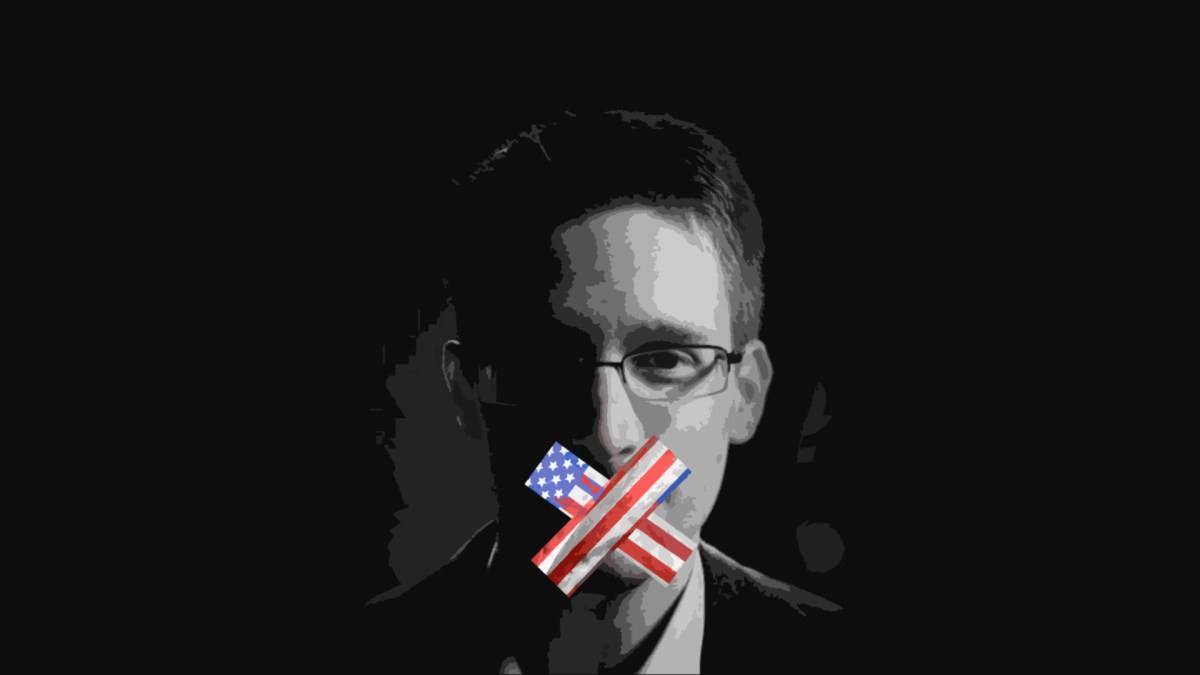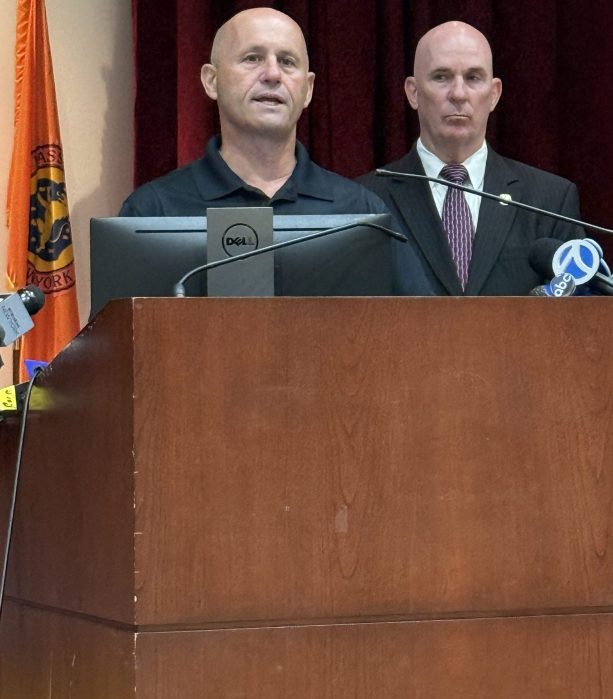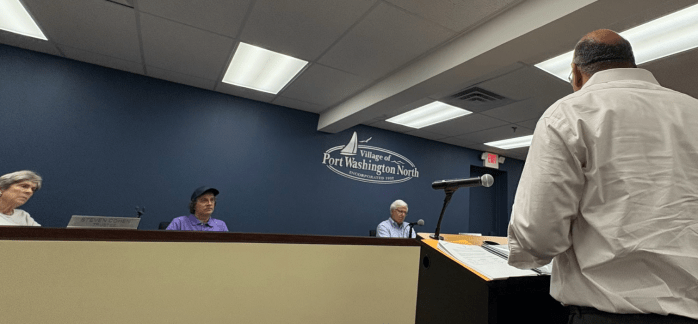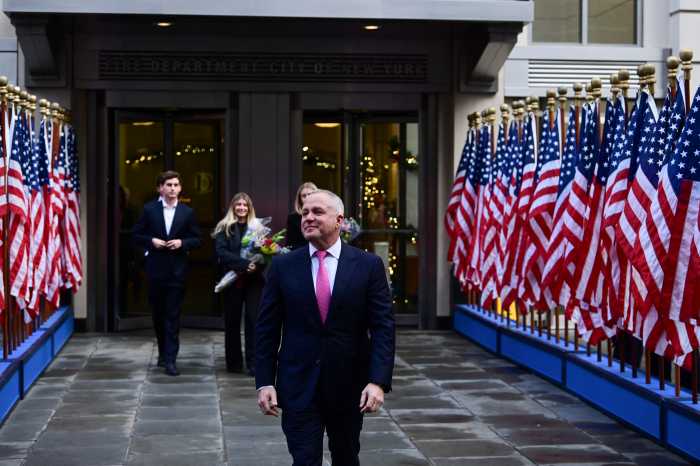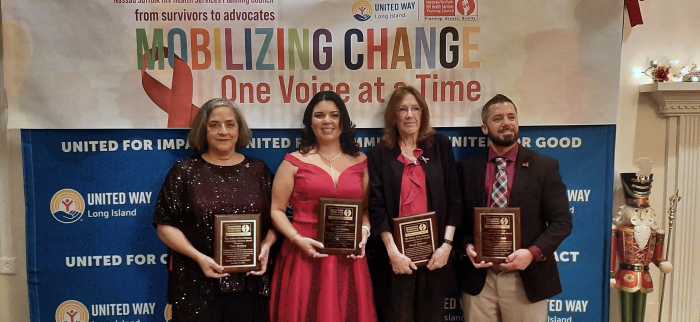As President Barack Obama soared into office eight years ago, he promised, on his first day in the White House, to launch “a new era of open government.”
“The Government should not keep information confidential merely because public officials might be embarrassed by disclosure, because errors and failures might be revealed, or because of speculative or abstract fears,” Obama said in a Jan. 21, 2009 memorandum.
Obama was urging the attorney general to issue new guidelines protecting The Freedom of Information Act. “In the face of doubt,” Obama proclaimed, “openness prevails.”
Notably, Obama’s transparency pledge came on the heels of President George W. Bush’s administration, which kept state-sponsored torture of alleged enemy combatants, a nascent drone assassination program, and covert eavesdropping of American citizens hidden from the eyes of the American public.
Aside from an economy teetering on the edge of collapse, Obama was inheriting two bloody and expensive wars, a bloated national security state that emerged from the “War on Terror,” and several controversial policies championed by his Republican predecessor.
Now it was the former constitutional law professor’s turn to respond.
As our country takes stock of Obama’s tenure as commander-in-chief, the Press determined it appropriate to scrutinize his record on press freedoms and his ongoing and unprecedented federal crackdown of whistleblowers.
While countless Americans may judge Obama’s performance based on their own current economic standing or their ability to find affordable health insurance, some have grown so dissatisfied with the outgoing president’s handling of transparency that they think his legacy has been tarnished. Reviewing the two-term Democrat’s record on this issue is especially relevant now given President-elect Donald Trump’s hostile attacks on journalism during his recent presidential campaign. At the reality TV star’s rallies, reporters were on the receiving end of venomous jeers as he whipped his supporters into disparaging the “vicious” mainstream media. If Obama, as some press advocates have claimed, rivals Nixon in his use of secrecy and abuse of executive power, then what do the last eight years portend for the next four under Trump? The signs do not look good for the Fourth Estate or the nation’s intelligence community for that matter.
Even before his inauguration, Trump called on Congress to investigate press leaks regarding Russia’s alleged hacking of the Democratic and Republican national political committees as well as Hillary Clinton’s campaign chairman John Podesta during the presidential campaign.
I am asking the chairs of the House and Senate committees to investigate top secret intelligence shared with NBC prior to me seeing it.
— Donald J. Trump (@realDonaldTrump) January 6, 2017
Most striking was President-elect Trump’s first press conference since being elected. After congratulating some news outlets for showing restraint, he went on to slam those that reported on an unsubstantiated intelligence report about the Russians possessing compromising information about Trump’s allegedly scandalous behavior in St. Petersburg and Moscow in 2013. He specifically blasted Buzz Feed and CNN.
As for Obama’s record, here’s what history will show: In his eight years in office, the Obama Justice Department spearheaded eight Espionage Act prosecutions, more than all US administrations combined. Journalists were also caught in the crosshairs: Investigators sought phone records for Associated Press journalists, threatened to jail an investigative reporter for The New York Times, and named a Fox News reporter a co-conspirator in a leak case. In Texas, a journalist investigating private defense contractors became the focus of a federal prosecution and was initially charged for sharing a hyperlink containing hacked information that had already been made public.
Those Espionage Act cases included the trial of Chelsea Manning, who was held in solitary confinement for nearly one year prior to her military trial, prompting a condemnation from the UN special rapporteur on torture.
“The absolute twisted passion with which the administration under Obama’s leadership has pursued whistleblowers is just appalling,” says Norman Solomon, executive director of the Institute for Public Accuracy and co-founder of RootsAction.org. “And as far as I can tell, the administration is unrepentant in that process. There’s just no other administration that comes close.”
Journalists’ concerns about their threatened rights became such a hot-button issue that Obama’s first US Attorney General Eric Holder had to publicly affirm that they would be spared from the confines of a metal cell under his watch.
“As long as I’m attorney general, no reporter who is doing his job is going to go to jail,” Holder said.
The frequency of Espionage Act cases under Obama has earned him the reputation of waging a “war on whistleblowers.” New York Times reporter James Risen has called Obama “the greatest enemy to press freedom in a generation.” Damning words, indeed.
In 2015, the United States was about to drop out of the top 50 countries in the Reporter Without Borders’ annual press freedom index, sliding 29 spots since 2009 when Obama took office. In the international watchdog organization’s report, RWB cited the ongoing conflict with whistleblowers for the decline. The United States regained eight spots in 2016, but the home of the Bill of Rights finds itself in the same company as two African nations, Burkina Faso and Botswana, and Slovenia—where, RWB notes, “anyone who feels offended or insulted by a newspaper article can demand the publication of a ‘correction’ in the same position in the newspaper.”
As RWB explained:
“US media freedom, enshrined in the First Amendment to the 1787 Constitution, has encountered a major obstacle—the government’s war on whistleblowers who leak information about its surveillance activities, spying and foreign operations, especially those linked to counter-terrorism.”
The Obama administration has deployed the Espionage Act against whistleblowers with such devastating effect that it punishes leakers who believe they’re acting in the public good and creates a chilling effect from national security agencies on down—a show of force that may make potential whistleblowers to think twice about disclosing information, according to rights groups and whistleblower advocates.
“The Obama administration has presided over the most draconian crackdown on national security and intelligence community whistleblowers in US history,” said Jesselyn Radack, a whistleblower herself and a national security attorney, at an event last February in Washington, D.C. to support the imprisoned whistleblower Jeffrey Sterling, a lawyer and former CIA employee. “The Justice Department has used the antiquated Espionage Act as a bludgeon to threaten, intimidate, silence and imprison whistleblowers for allegedly mishandling classified information.”
Timothy Karr, senior director of strategy for Free Press, said one would have to go back seven presidential administrations to find someone as prodigious in cracking down on whistleblowers as Obama.
“The Obama administration is like the Nixon administration in many respects,” he said at the same event. “The Nixon administration tried to silence whistleblowers using illegal means. But the Obama administration is trying to silence whistleblowers using a misinterpretation of the laws that are on the books, and they have done it to greater impact than Nixon could ever imagine.”
Even customary access that White House correspondents had enjoyed for decades has been disrupted, according to a scathing 2013 Committee to Protect Journalists report.
“In the past we would often be called into the Roosevelt Room at the beginning of meetings to hear the president’s opening remarks and see who’s in the meeting, and then we could talk to some of them outside on the driveway afterward,” ABC News White House correspondent Ann Compton, who has covered every president since Gerald Ford, told the report’s authors. “This president has wiped all that coverage off the map. He’s the least transparent of the seven presidents I’ve covered in terms of how he does his daily business.”
Those authors were unequivocal in their condemnation: “U.S. President Barack Obama came into office pledging open government,” they wrote, “but he has fallen short of his promise.”
Yet while the future of press freedom rights in the era of Trump have taken center stage, Obama’s own record has been spared equal scrutiny.
Solomon, who is also a journalist, has witnessed the overwhelming force the Obama DOJ has deployed in prosecuting whistleblowers. In his case, he was one of the few reporters embedded in the Alexandria, Va. courtroom during Sterling’s trial.
“If people are informed, they understand that the Obama administration is guilty of really eroding seriously vital constitutional protections, including the First, Fourth and Fifth Amendment,” Solomon tells the Press over the phone from California. “I really can’t think of a president who’s done more damage to civil liberties than President Obama.”
He’s hardly alone in drawing that conclusion.
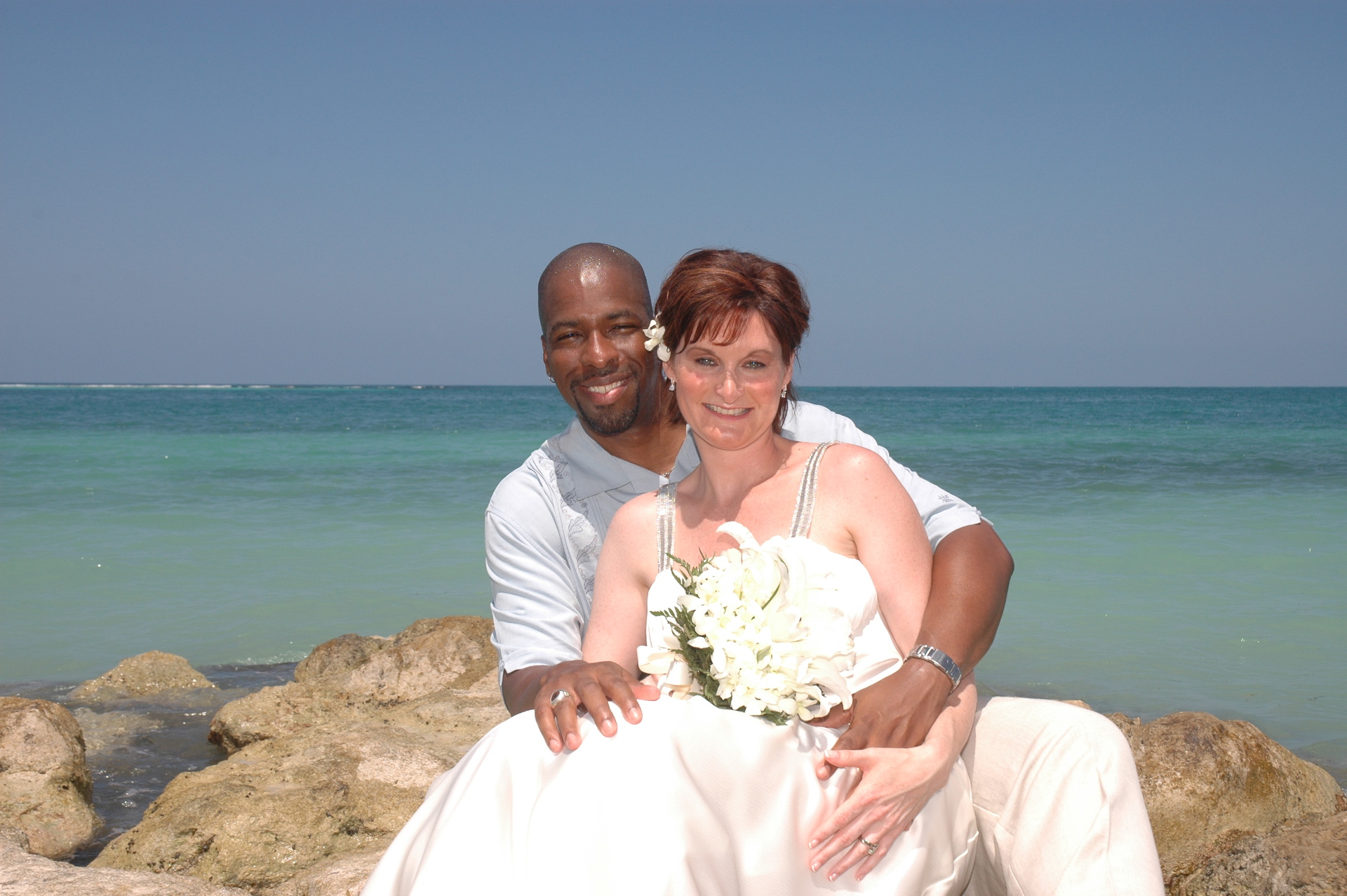
THE WAR NO ONE SAW COMING
In legal limbo as America elected a new president in 2008 were two leakers whose investigations began under George W. Bush’s administration: the NSA’s Thomas Drake and former CIA agent Jeffrey Sterling. The case against Sterling began in 2005 but the ex-spy was not officially charged until the Obama DOJ took over. By 2010, Sterling’s attorney indicated that things appeared to be settling down. “And then, bam—he was indicted,” Sterling’s wife Holly told the Press last year. As for Drake, he was indicted three years after the FBI first raided his Maryland home.
The two cases share startling similarities: career men who attempted to blow the whistle through the proper government channels but whose concerns fell on deaf ears. Both men were eventually charged under the Espionage Act, a law originally enacted to prosecute spies. Eventually, the DOJ dropped the Espionage Act charges against Drake after he pleaded guilty to a lesser charge.
Sterling’s case may be unlike any other whistleblower’s in that the government’s aggressive litigation also included Risen, the Times reporter. After an appellate court ruled that the reporter’s privilege did not protect Risen, the DOJ, despite aggressively pursuing Risen to give up his source, declined to put him on the stand.
In addition, Sterling’s case, like Drake and other leakers, revealed that despite expressing his concerns through the “proper channels” about a botched operation to sabotage Iran’s nuclear operation, they went unheeded.
“You can either go through proper channels and risk prison, or you can go to the press and risk prison,” said John Kiriakou, the former CIA officer who was the first to confirm specific torture methods, last year. “Or you can just keep your mouth shut. And the powers that be are banking that you’re just going to keep your mouth shut.”
Kiriakou insists Sterling was well within his rights to blow the whistle to the Senate Intelligence Committee. “And he paid for it with his freedom. The point wasn’t just to imprison Jeffrey…The point was to ruin him, utterly ruin him for the rest of his life.”
In Kiriakou’s case, he became the first CIA operative to confirm that waterboarding was used on so-called “War on Terror” detainees. Within 24 hours of his revelations to ABC News, he became the subject of a federal criminal report. Married with five children, he said he pleaded guilty to avoid crushing legal fees and the potential for a protracted sentence.
“Neither one of us had ever been in any kind of trouble,” Kiriakou said of him and Sterling. “We served our country proudly.”
Unlike Kiriakou, Sterling decided to leave his fate in the hands of a jury.
Sterling’s case has not generated nearly the same amount of attention, though his legal drama has unfolded over a decade.
In 2003, Sterling, who spent time in the CIA on the Iran desk, reached out to the Senate Select Committee on Intelligence to voice his concerns about “Operation Merlin”—the code name for a mission using a Russian defector whom the CIA had arranged to deliver ostensibly flawed nuclear plans to Iranians in Vienna, Austria, in early 2000. Risen, in his book State of War, reported that the mission inadvertently benefited the Iranians’ nuclear agenda.
Sterling’s entreaty came one year after he was fired from the agency, which he claimed in a lawsuit was racially motivated—a charge that was first reported by The New York Times in March 2002.
“According to Mr. Sterling, a supervisor on the Iran Task Force of the agency blurted out why he had not been given new assignments. As a ‘big black man speaking Farsi,’ Mr. Sterling ‘stuck out’ and would draw too much attention to the agency’s secret Iranian agents. The supervisor, who is white, suggested that a black man, especially a tall athletically built black man like Mr. Sterling, could not meet secretly with Iranians without putting the agency’s most sensitive Iranian cases at risk, Mr. Sterling said.”
During his trial, the prosecution used the lawsuit as a tool to portray Sterling as vindictive—which, they argued, would help explain his motivation for allegedly leaking classified information about “Operation Merlin” to the Times‘ Risen. “He was bitter. He was angry. He was seeking revenge,” the prosecution told the jury.
“The defendant struck back at the CIA because he thought he had been treated unfairly,” federal prosecutor Jim Trump argued in court. “He had sued the agency for discrimination and demanded that they pay him $200,000 to settle his claim. When the agency refused, he struck back with the only weapon he had: secrets, the agency’s secrets.”
The lawsuit was struck down after the government successfully invoked the “state secrets” clause. That was enough for the court to dismiss the suit—a ruling that was upheld on appeal.
As for keeping the agency’s methods under wraps, the prosecution in Sterling’s trial led witnesses through a complicated spy game culminating in the Russian asset’s providing ostensibly flawed nuclear plans to the Iranians to send the country “down blind alleys, wasting their time and discrediting Russians’ designs and equipment in their eyes,” a former CIA officer testified at trial.
Government witnesses provided an unusual glimpse into the inner-workings of the CIA, how it delicately handles untrained assets and the meticulous planning that goes on among various people within the agency. It had the trappings of a best-selling spy thriller or an episode of Homeland—with a Russian defector, no less, in the starring role. And it painted the operation as a watershed.
A former colleague of Sterling, who went by the name “Robert S.” was summoned to testify about the importance of the Russian asset given the promise of obtaining inside knowledge of his country’s nuclear weapons programs.
“This was a period of a great deal of concern about brain drain; that is to say, the Soviet Union had collapsed…people were not being paid in many cases, and the government of Iran, for example, was advertising for talent in those key areas,” Robert S. testified. “So our conclusion was that ‘Merlin’ might be very attractive to the Iranians as a former Russian nuclear weapons engineer. They might be very interested in talking with him.”
The book containing the alleged Sterling leaks, State of War, was published in 2006. Four years later, Sterling was named as the source of the leak and was indicted in federal court in the Eastern District of Virginia. Sterling has denied ever leaking information to the Times. The site of the trial was curious, as Sterling neither lived in the Eastern District of Virginia nor allegedly spoke to Risen in that jurisdiction. Still, the government said it believes it met the circumstantial burden of proof to prosecute Sterling in Virginia, partly because State of War could be purchased at a Barnes and Noble in the Eastern District—an argument that invited skepticism from at least one of the three judges considering Sterling’s appeal during oral arguments last December.
In a letter that Sterling sent to Sen. Carl Levin (D-Mich.), chairman of the Senate Armed Services Committee, he remained steadfast in proclaiming his innocence and suggested the leak could’ve come from elsewhere.
“In early April the information was evidently leaked to the press,” he said. “I have no idea what the [Senate Intelligence Committee] staffers did with the information, but it is difficult for me to assume that the leak did not somehow originate from the Senate Intelligence Committee.”
Federal investigators reportedly did not expand their probe beyond Sterling.
He was convicted despite the absence of evidence linking him directly to Risen. Sterling’s defense predicted the government would fail to present a smoking gun in its opening remarks, telling the court: “You didn’t see an email that came up. You’re not going to see or hear a phone call. You’re not going to hear anything—and that’s because it doesn’t exist.”
What the government did present was a list of phone calls and emails allegedly exchanged between Sterling and Risen in lieu of the actual content of the communication. As a result, the BBC dubbed the case, “Jeffrey Sterling’s Trial by Metadata.”
“How is it possible that proving the mere existence of contact between a former CIA operative and a reporter is sufficient to convict someone for Espionage?” said Delphine Halgand, US director of Reporters Without Borders, last February. “Is a relationship with a reporter the new catalyst for government prosecution of whistleblower[s] whether alleged or actual? If anybody can be sentenced in the United States just because he was merely talking to a journalist, where is the press freedom going in the country of the First Amendment?”
Last year, Sterling’s wife Holly told the Press that despite the ensuing hardship, she still believes her husband did the right thing.
“A great injustice” has been done, she said. “He inspires me to be a better person everyday.”
In a recent interview, she said she never received a response from the Obama White House regarding her petition to exonerate her husband, which was signed by more than 100,000 supporters.
Instead of being vilified, adds the Institute for Public Accuracy’s Solomon, whistleblowers like Sterling should be credited for shining sunlight on important issues.
“It is important to convey to the public that whistleblowers are part of a lifeline for information,” he says. “If you only get official information, then huge parts of reality will be omitted, and so the American people need to understand more clearly than ever that whistleblowers are essential to the public not being kept in the dark. We’re not supposed to be in the dark.”
Keeping the public in the dark became a hallmark of the Obama DOJ. Thomas Drake, Shamai Leibowitz, Chelsea Manning, Donald Sachtleben, Stephen Kim, Jeffrey Sterling, John Kiriakou. They all felt the force of the US government.
Then came Edward Snowden.
‘TRAITORS’
What Snowden disclosed and how he endeavored to provide select journalists access to secret NSA documents is well known. His detractors continue to spread a false narrative that Snowden willfully escaped to Russia and somehow passed off intelligence to America’s Cold War foe.
An executive summary published by the House Permanent Select Committee on Intelligence in September 2016 twice falsely claimed that Snowden “fled” to Russia after leaving Hong Kong. Snowden was traveling through Russia en route to Latin America when the US government revoked his passport—effectively cutting off Snowden from the rest of the world. The same report claims, without evidence, that Snowden provided intelligence he took from the NSA to the Russian government—an allegation that the American whistleblower forcefully denies. Snowden has insisted that he gave all the documents in his possession to journalists because he was unqualified to decide which belonged in the public sphere.
The government report is also critical of Snowden for his failure to go through proper channels to air complaints, but fails to mention that whistleblower protection laws do not protect national security contractors like Snowden from retribution, unlike federal employees.
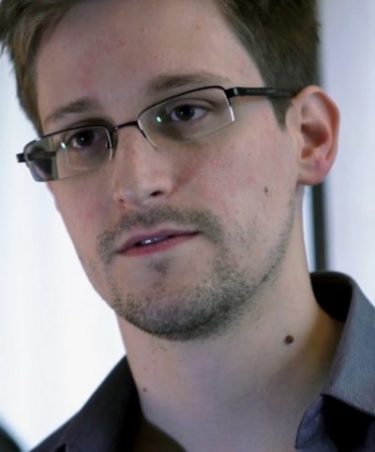
In March 7, 2014, Snowden testified in front of the European Parliament that he had reported “problematic programs” to more than 10 American officials, “none of whom took any action to address them.”
“As an employee of a private company rather than a direct employee of the US government,” he said, “I was not protected by the US whistleblower laws, and I would not have been protected from retaliation and legal sanction for revealing classified information.”
In 2012, President Obama used an executive action to improve whistleblower protections in certain cases, which was called “Presidential Policy Directive 19.” Advocates acknowledge that the directive did bolster protections for whistleblowers, but contractors—which The Washington Post several years ago estimated to make up nearly 30 percent of the intelligence workforce—were excluded. That same year, a pilot program protecting national security contractors’ right to blow the whistle also ended.
“The result,” Snowden told the EU panel, “was that individuals like me were left with no proper channels.”
In a letter dated June 9, 2015, a consortium of rights groups told US Senate leaders that protections for contractors that were in place for five years had been successful in “deterring taxpayer waste and contractor abuse.”
“Correcting this obvious void is essential for preserving our democracy, because the stakes could not be higher for our nation when dealing with Intelligence agency misconduct,” the letter added.
The federal government does not have one set of unified whistleblower protections. Instead, they are a “patchwork of protections,” Elizabeth Hempowicz, policy counsel at the Project on Government Oversight (POGO), tells the Press.
“Probably every federal agency, you can at least go to your IG (Inspector General),” she says, “and most agencies have a chain of command that you can go through to report whistleblowing complaints through, but that’s slightly different than the protections that they have.”
Having an umbrella law covering whistleblowers is the ultimate goal of her project, but Hempowicz is not optimistic.
“I don’t think that will ever happen,” she says. “Even now there’s big disparities in the different kinds of protections that whistleblowers get depending where they are.”
Whistleblowers who have come under government scrutiny complain of a double standard. Government-approved leaks—information given to journalists that is not embarrassing but instead paints an agency positively—are commonplace in Washington, D.C. and don’t often lead to prosecution. But if prosecutors do decide to act, the treatment of the whistleblower is favorable.
The case most often cited by whistleblowers as particularly outrageous is that of Gen. David Patraeus, the former CIA Director who pleaded guilty to disclosing classified information to his mistress and biographer, but received only two years of probation. Patraeus also lied to the FBI, but federal investigators decided against charging him under a section of the Espionage Act.
In a 14-page letter Holly Sterling sent to Obama on Oct. 15, 2015, she mentioned the “obvious disparate treatment” given to Patraeus.
“If one strips away the race, financial status, and political clout of Jeffrey and Mr. Patraeus and solely reviewed the alleged crimes of Jeffrey and those pled by the general, it is glaringly obvious this was selective prosecution and sentencing,” she wrote the president, asking for clemency.
There’s also the case involving the making of the Oscar-nominated film Zero Dark Thirty, which famously followed a CIA officer’s mission to capture Osama bin Laden, and suggested that the CIA’s torture program was key in tracking down the 9/11 mastermind. Kathryn Bigelow, the film’s director, attended a classified briefing about the hunt to capture Osama bin Laden, and, according to reports, the CIA persuaded the filmmaker to remove elements that would cast the clandestine agency in a bad light. The apparent collaboration did trigger two internal investigations, but no one within the CIA was ever prosecuted for cooperating with the filmmaker about the bin Laden manhunt.
As far as public perception goes, Hempowicz of POGO says that government-approved leaks and disclosures from whistleblowers appear similar, “except one is protected because you’re doing the bidding of those above you and those people who would be in charge of investigating and taking action against you.”
“I think there’s just an inherit problem when the government is trying to do its work by leaking information,” she adds, “and yet turning around to people who are blowing the whistle or leaking for the public interest, and then saying, ‘You can’t do this; you have to go to jail now for doing the same thing.’”
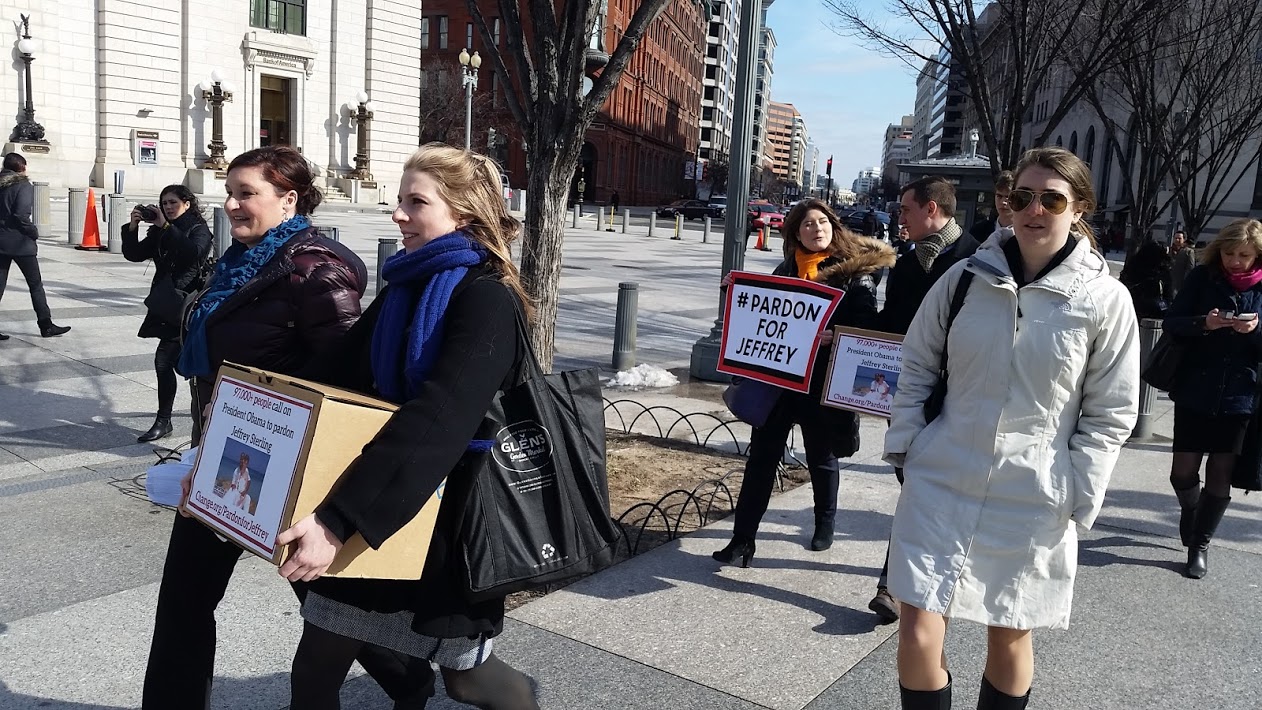
SHADOW WAR
As a horde of reporters sought to interview speakers after an event held inside the National Press Club in Washington, D.C. last year to raise awareness about Sterling’s plight, John Kiriakou escaped to an empty room. The building is just blocks from the White House. In a few moments Kiriakou and about a dozen other whistleblower advocates, including Dr. Cornel West, would march down Pennsylvania Avenue with boxes filled to the brim with signed petitions calling for Jeffrey Sterling’s release from prison.
Kiriakou is well familiar with the painstaking decisions whistleblowers must make when faced with decades in prison.
“We were determined to fight [the charges],” he said. But after he and his wife considered the financial undertaking and how it would affect their five children, they concluded that the legal battle would be ruinous.
“Imagine the entire weight of the American government crashing down on your head and the government’s goal being to see that you either die in prison or serve as many years as possible,” he said. “It would’ve ruined us as a family.”
Kiriakou added that he still owed more than a half-million dollars in attorney fees.
But the former CIA officer remains an advocate for whistleblowers and press freedoms—which in an era of mass surveillance and historic leaks, prosecutions appear to go hand-in-hand. He’s heard from journalists who told him their sources have “dried up” as a result of Obama’s crackdown.
“Oh, my god, are they afraid,” said Kiriakou. “I’m in touch with a lot of former colleagues from the CIA, and yeah, they’re all afraid. One former CIA officer told me that he called his regular journalistic contact and said, ‘Things are too hot…I can’t talk to you anymore.’”
It’s a problem facing many reporters covering national security, say press advocates such as Norman Solomon.
“There are journalists at the Times and elsewhere that have said they feel like drug dealers with bags of quarters trying to go to payphones,” he says. “I think it’s a deep feeling among journalists, especially in the so-called national security area.”
The Times‘ Risen is not the only journalist to come under scrutiny for his reporting. In 2013, the government seized phone records for Associated Press reporters amid a leak investigation into a foiled al-Qaeda plot to blow up a US-bound airliner. The Justice Department successfully obtained two months’ worth of phone records from more than 20 AP phone numbers, including the reporters and editors of the article that sparked the probe.
The AP, in its report on the government seizures, said media outlets are often warned in advance that federal investigators are seeking phone records, but on this occasion, the DOJ used an exemption stipulating notification can be waived if doing so would “pose a significant threat to the integrity of the investigation.”
The AP’s story was justified, said the news agency, “both because of [the plot’s] seriousness and also because the White House previously had told the public it had ‘no credible information that terrorist organizations, including al-Qaeda, are plotting attacks in the U.S. to coincide with the (May 2) anniversary of bin Laden’s death.’”
But now even discussions that do not rise to the level of “classified” have some journalists and their sources on edge.
One of the authors of the 2013 CPJ report noted that “numerous Washington-based journalists told me that officials are reluctant to discuss even unclassified information with them because they fear that leak investigations and government surveillance make it more difficult for reporters to protect them as sources.”
“I worry now about calling somebody because the contact can be found out through a check of phone records or e-mails,” the report quoted journalist R. Jeffrey Smith of the Center for Public Integrity. “It leaves a digital trail that makes it easier for the government to monitor those contacts.”
In a lengthy statement provided to ProPublica in 2014 while Holder was still AG, the Justice Department insisted it does not target whistleblowers; rather, it contended, it is just stringent when it comes to protecting sensitive information.
“Should any federal employee wish to blow the whistle or report government wrongdoing, there are well-established mechanisms for doing so with the Offices of Inspector General of their respective agencies,” the Justice Department said. “With regard to classified information, there is a particular statute providing lawful mechanisms for reporting such matters. We always encourage federal employees to do so. However, we cannot sanction or condone federal employees who knowingly and willfully disclose classified information to the media or others not entitled to receive such information. An individual in authorized possession of classified information has no authority or right to unilaterally determine that classified information should be made public or disclosed to those not entitled to it. The leaker is not the owner of such information and only the owner can declassify such information.”
In an appearance at the National Press Club in August 2014, Risen said he was first subpoenaed in 2008 by the Bush administration, but it was Obama’s White House that “turned this really into a fundamental fight over press freedom” when it appealed a lower court’s decision to the US Court of Appeals for the Fourth Circuit in Virginia.
“There’s no way we can do our jobs if we don’t have the ability to have aggressive investigative reporting in America and to have the ability to maintain confidential sources,” Risen said. “There is just no way to conduct aggressive investigative reporting without a reporter’s privilege of some kind, without confidential sources.”
Risen has never stopped reporting, but the person the government accused of being his source remains in federal prison in Colorado.
In an interview with the Press this week, Holly Sterling said her husband Jeffrey has been battling health issues, and despite repeated requests, he did not receive treatment until she organized a mass phone-call effort to the prison on his behalf.
She worries that if he’s not released soon, his 42-month sentence could become a death sentence. Her goal now is to just get him through these trying times.
“I still have hope that the government can do the right thing and can reverse the conviction,” she says.
But she acknowledges that the appeal is a “long shot.”
“There’s always just horrible dark clouds over you,” she says. “It’s like an elephant sitting on your chest.”
And like an elephant in the room, she says that the country continues to ignore the blatant role that racial discrimination had in both her husband’s prosecution and his imprisonment.
“No one really wants to acknowledge the race issue that played in this,” she says. “People don’t want to acknowledge that we have a race issue in this country.”
With Obama only days away from exiting the White House and Trump moving in, it’s likely that the political climate surrounding whistleblower issues will only grow colder.
If statements from Trump’s pick to run the CIA, Rep. Mike Pompeo (R-Kan.), are any indication, advocates will have an uphill fight. Pompeo is on record as saying that Snowden should be “brought back from Russia” for trial. More ominously, he said, “I think the proper outcome would be that he would be given a death sentence.”
Trump himself has suggested capital punishment for a man that many Americans, including the Nixon-era whisteblower Daniel Ellsberg, have called a hero:
Snowden is a spy who has caused great damage to the U.S. A spy in the old days, when our country was respected and strong, would be executed
— Donald J. Trump (@realDonaldTrump) April 19, 2014
Trump may also provoke a prolonged fight with journalists just doing their jobs.
In his first press conference since being elected, Trump chided news organizations for reporting on an unsubstantiated 35-page dossier containing compromising information on the president-elect compiled by a former British spy who allegedly said that Vladimir Putin’s government had been “cultivating, supporting and assisting Trump for at least five years” in order to “encourage splits and divisions in the western alliance.” Trump refused a CNN reporter’s question, calling his cable outlet “fake news,” and referred to Buzz Feed, which ran the full document online earlier this week, as a “failing pile of garbage.”
Now Obama is about to leave office as the president who spent eight years waging a war on whistleblowers that was historic in scope—a war that put journalists in the crosshairs. In a matter of days Trump will take power. How he responds to the next major leak of classified information is, as all things Trump, up in the air.
“It’s a high bar,” says Solomon, the journalist and advocate for the press, “but Donald Trump may try to clear it.”
—With Christopher Twarowski




